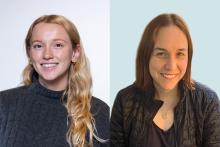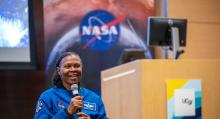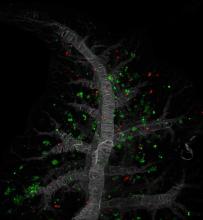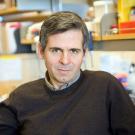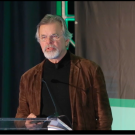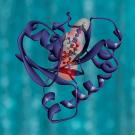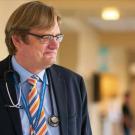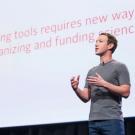News
2017 Faculty Research Lecture in Basic Science: Arturo Alvarez-Buylla
Arturo Alvarez-Buylla, PhD, has been selected by his peers as the recipient of the 60th annual Faculty Research Lectureship (FRL) in Basic Science. Dr. Alvarez-Buylla currently serves as the Heather and Melanie Muss Professor of Neurological Surgery, UC San Francisco School of Medicine and a member
UCSF Precision Cancer Medicine Building Design Focuses on Patient Experience
When the Precision Cancer Medicine Building (PCMB) opens in early 2019 in Mission Bay, it will serve as the new heart of outpatient cancer care at UCSF and will be a place in which patients and their loved ones can trust they are receiving the finest care in the world. With its combination of the
UCSF Scientists, Leaders Highlight Latest Advances at 2017 Precision Medicine World Conference
Scientists, clinicians and entrepreneurs shared the latest innovations and initiatives in the rapidly evolving movement to make health care more personal, predictive and preventive at the Precision Medicine World Conference (PMWC) in January. UCSF Speakers at Precision Medicine World Conference UCSF
Genetic 'Balance' May Influence Response to Cancer Treatment
Choosing among cancer treatments increasingly involves determining whether tumor cells harbor specific, mutated “oncogenes” that drive abnormal growth and that may also be especially vulnerable or resistant to particular drugs. But according to a new study led by UCSF researchers, in the case of the
Exploring Genomics' Gray Zone to Improve Cancer Treatment Options
Last year, UCSF launched the Molecular Oncology Initiative (MOI) to integrate molecular information found in most cancer types with the ever increasing number of therapeutics being developed in translational research and clinical practice. The UCSF Molecular Tumor Board (MTB), a group of experts
Scalp Cooling Can Help Some Breast Cancer Patients Retain Hair
Scalp cooling can lessen some chemotherapy-induced hair loss – one of the most devastating hallmarks of cancer – in certain breast cancer patients, according to a new multicenter study from UC San Francisco, Weill Cornell Medicine and three other medical centers. A majority of the study’s patients
15 UCSF Researchers Named to First Cohort of Chan Zuckerberg Biohub Investigators
Fifteen UC San Francisco faculty members have been named to the first cohort of Chan Zuckerberg Biohub Investigators. The CZ Biohub is an independent nonprofit research organization formed as a collaboration between UCSF, UC Berkeley and Stanford University with the goal of inventing new tools to
